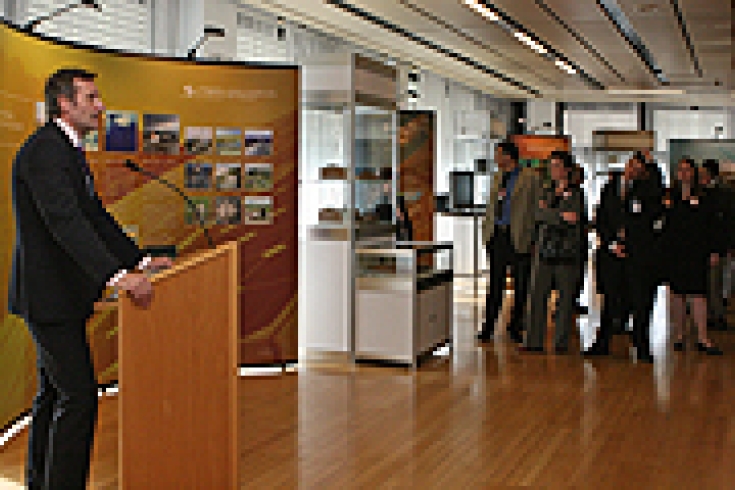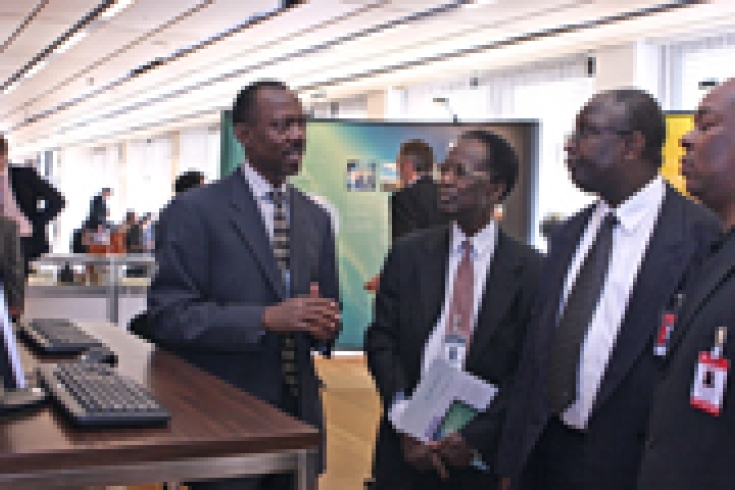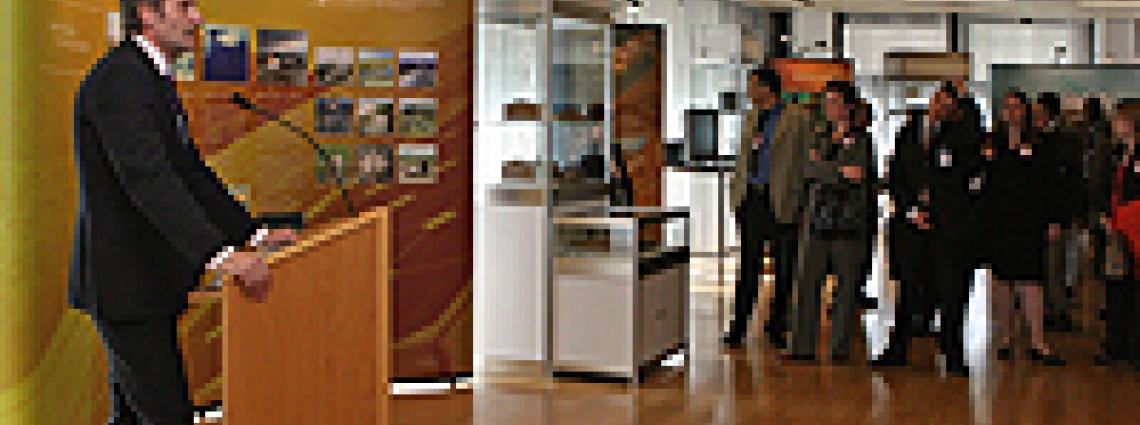Other speakers also referred to changes in the international political environment that opened up new opportunities to promote early entry into force of the Treaty. Ambassador Robert Grey, Director of the Bipartisan Security Group and former US Ambassador to the Conference on Disarmament, spoke about recent political developments in the United States and expressed hope that they might lead to the re-opening of discussions on the CTBT and its ratification.
Just outside the main conference room in the Austria Center, the CTBTO Preparatory Commission showed its exhibition "Verifying the Comprehensive Nuclear Test Ban". Devised to mark the tenth anniversary of the Treaty and its Preparatory Commission, the exhibition illustrated the Commission's achievements in building a sophisticated alarm system to monitor the globe for nuclear explosions. The central elements of the CTBT verification regime were depicted on five display walls.
For two days, the exhibition was complemented by a display of technical equipment, models of monitoring stations and computer screens showing the live feed of monitoring data and data products. Experts from the CTBTO technical divisions guided visitors through the exhibition and explained the functioning of monitoring stations, the processing of monitoring data and the procedures of an on-site inspection.
Visitors used the opportunity of guided tours to a radionuclide facility on the roof of the Vienna International Centre. The facility is a fully functioning radionuclide test station which serves training and testing purposes.
In March 2007, the PTS opened its new Operations Centre in Vienna which is the central location from where experts watch the functioning of all currently operating monitoring stations and communication installations. Interested delegates, NGO representatives and journalists joined tours of the Operations Centre. Using the 9 October 2006 event in the Democratic People's Republic of Korea as an example, Executive Secretary Tibor Tóth together with technical experts gave presentations on the key aspects of the verification regime.
Over 30 non-governmental organizations (NGO) were present at the NPT Preparatory Committee to make their voice heard. On 2 May 2007, they presented their views on nuclear disarmament and non-proliferation to States Parties to the NPT. In lunch-time seminars and other side events, NGO directed the attention of delegates to many related subjects, such as the general status of nuclear disarmament and non-proliferation, a nuclear weapons convention, nuclear disarmament and outer space, the use of nuclear energy and disarmament education.
The first session of the Preparatory Committee for the 2010 NPT Review Conference ended with the adoption of the procedural report. The Chairman's factual summary was circulated as a working paper. The paper emphasizes the strong support that was expressed for the CTBT in the meeting. It also reiterates the appeal to those States which had not ratified the Treaty, especially those remaining 10 States whose ratification was necessary for its entry into force, to do so without delay and without conditions.



